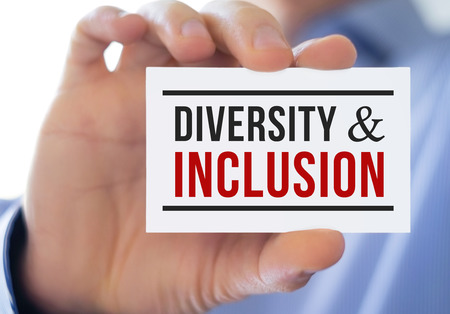A few weeks ago, I attended a conference and one of the speakers proudly identified herself as an introvert. Thanks to Susan Cain, author of Quiet, the gifts of introverted personalities are favorably being recognized. As a consultant who has worked with personality and behavioral assessments for over 15 years, I was thrilled to hear what I thought was going to be an inclusive proclamation of introversion.
I was so wrong. Her next statement sent my head reeling, “. . . which is why I don’t like people.”
From my point of view, what I heard was not a statement of understanding of diversity, but rather a statement excusing potential ill-behavior.
Her statement made me wonder how many of us use labels of personality incorrectly and hurt the cause of creating a safe and open culture.
Is your language, not just when it comes to gender or race, inclusive of others and valuing of diversity? Or are you using personality labels to distance yourself from your colleagues?
How do you ensure that the personality system you are using is enabling and strengthening an inclusive and diverse workplace?
Use the following suggestions to strengthen a positive culture:
- Refrain from using all or nothing labels of personality. Statements such as “you are an introvert or an extravert; a blue or a yellow; a bulldog or a golden retriever” erode an inclusive culture. These titles are just as harmful and divisive as saying “you are a woman and therefore you like to shop.” As we work to eliminate gender and race-related statements that destroy an inclusive workplace, let’s do the same with personality labels.
Expand the sophistication of your thinking to eliminate personality biases. I recommend using trait theory-based tools, such as Lumina Spark, verses typing tools to understand yourself and your fellow human beings. For example, you might say, “most of the time I use the traits of extroversion, especially when I am at work.” It is much more accurate for describing our behavior than all or nothing statements.
- Embrace your personality traits, whatever they maybe. Even if your work culture seems to favor some traits over others, resist the temptation to fake it and not be yourself just to fit in with the crowd.
- Fight the urge to use your natural personality traits as an excuse for behavior. For example, “Sorry if you think what I said was over the top, I was just thinking out-loud and that’s what us extraverts do.” Or, “I don’t speak up in meetings, I am an introvert you know.” These kinds of comments do little to further diversity and inclusion.
- Resist using personality labels to define and confine coworkers. This simplifies and reduces others to fit into a box that is not honoring the complexity of humanness. Instead attempt to use personality traits as an opening to discuss similarities and differences, inquiring how you might meet their communication preferences and to understand and appreciate their strengths.
When used correctly, personality systems offer a powerful and positive way to assist in creating a brilliant workplace. By including all and developing that diverse and rich culture, we will attain brilliant results.

